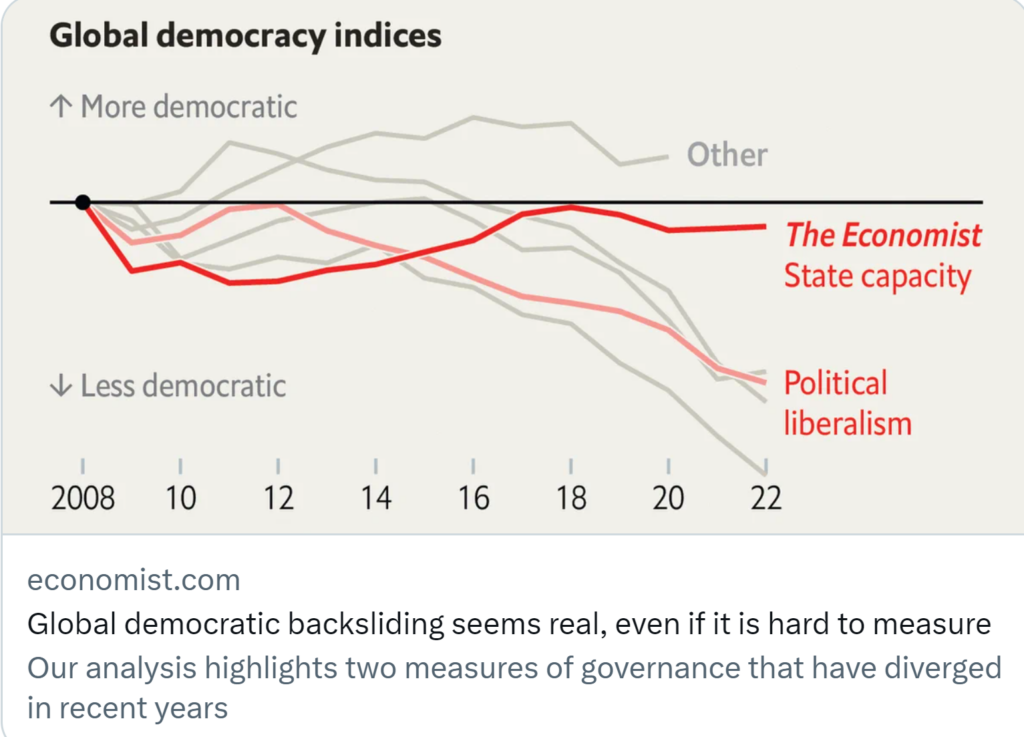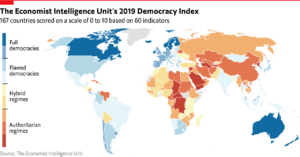
To support claims of “democratic backsliding” or “autocratisation”, analysts usually turn to annual quantitative scores of countries’ democratic vigor, The Economist observes. These widely cited indices, published by think-tanks like Freedom House and V-Dem and also by our sister organisation, the Economist Intelligence Unit (EIU), have been falling on average since the early 2010s. Their scores largely rely on experts’ subjective opinions about the strength of different aspects of democracy, such as the fairness of an election rated on a five-point scale, it adds:

EIU DEMOCRACY 2019
This year, however, these indices have come under renewed scrutiny. Some say they reflect the political preferences of their authors rather than real changes in how countries are governed. A new study, by Andrew Little of the University of California, Berkeley and Anne Meng of the University of Virginia, found that during the recent period of purported backsliding, countries’ marks on objective measures, such as whether the ruling party had violated term limits or the number of journalists killed, had barely changed in aggregate.
In an effort to arbitrate between these competing conclusions and identify which, if any, aspects of democracy have been in decline, The Economist identified two key aspects of governance—one broadly aligning with state capacity, the other with aspects of liberalism, openness and competition—whose fates have diverged over the past 15 years. The results suggest that standards of democracy probably have regressed since 2008, even if they are hard to measure objectively.







